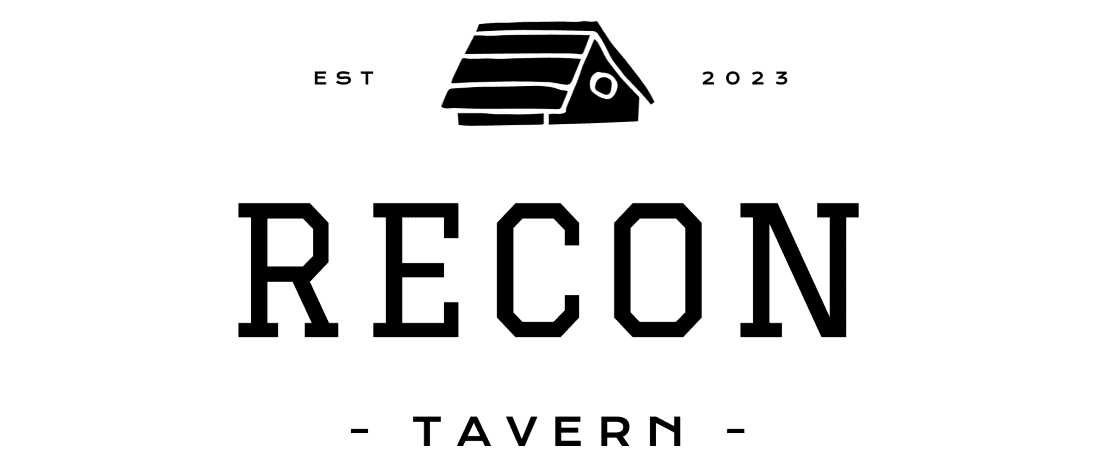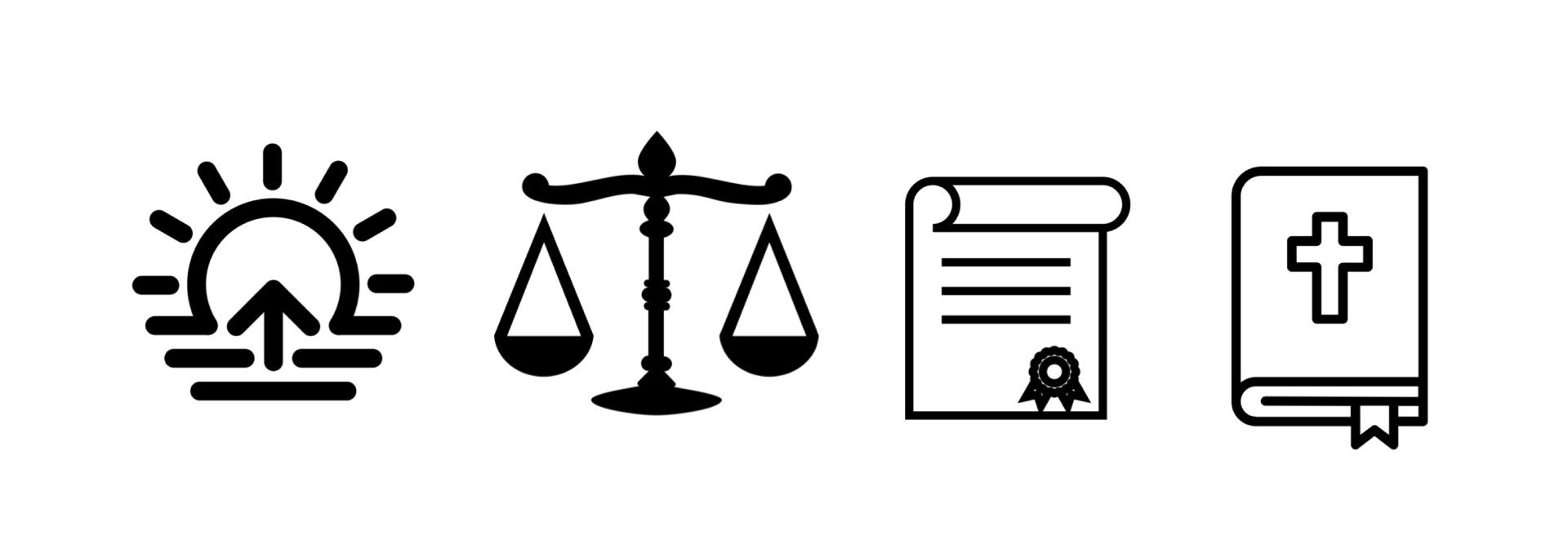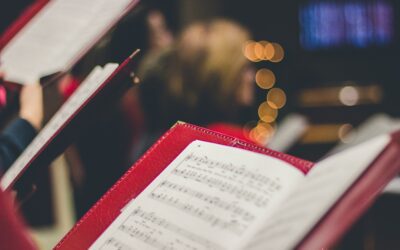Should I be legally allowed to assert a government-enforceable property right in a number, the same way I might assert ownership over a piece of land, or an item of physical personal property?
This is an important question. For example, consider the following number:
3485093840598430458039485093845090495830498
5093485340983409853094850930593840598340975
0394570934750937405973409570394703947509340
5981324217219029837492873498237461726812638
127638172368
Am I allowed, under Biblical law, to say: I claim “ownership” of the above number, with the authority (backed by civil government) to prevent anyone else from copying, printing, selling, or making a “derivative work” from this number that I now own? Can I employ the coercive power of civil government to confiscate property from someone who thus violates my “intellectual property”?
If you say “no”
Everything which is information can be (and usually is) digitized as a number (often a very long number). This is how we all send information through our various communication systems. Numbers (in various forms) are how all information is encoded. If I cannot “own” a number, then there is no such thing as a property right in information.
If you say “yes”
- Please cite the appropriate Bible verse(s) which suggest that numbers can be owned.
- Does the length of the number matter? If so, why (scripturally) would it?
The consequences of owning a number
If I am allowed, under Biblical law, to own a number, then I hereby make the following public declaration:
I own the mathematical constant Π (pi: 3.14159265….)!
I know of no one else who has made such a claim to the ownership of π (but feel free to correct me on this). Therefore, by my public declaration, I have established a temporally prior ownership claim (unless someone can show such a claim by someone before me.
A side-effect of my claim: I also own every other finite sequence of numbers. In other words, because π is (very likely) random, and also infinite, π therefore contains all other finite sequences of numbers, which I now own.
Possible objections
Now I anticipate some objections to this claim.
Prior claim to certain finite numbers
For example, you might say something like:
Well, I claimed ownership of some finite sequences of numbers before you rashly jumped in and asserted your own claim to an infinite number. Therefore, I have a prior claim to those numbers, and thus I can show legally that my claim excludes yours.
This is a valid objection, and I won’t dispute it directly. However, I will merely suggest that your ownership of your (finite) numbers has a boundary, but my infinite number (π) does not. So, for example, if I were to add a zero (or three) onto the end of your number, we are talking about a different number than yours, and I own that one (because of my claim on π). Do whatever you want with your number, and I will do what I want with mine.
“Public domain” numbers
Another person might object:
You can’t claim π! People have been using π for thousands of years. Nobody owns it, because it is in the public domain!
I see the objector’s point. He is suggesting that it is unreasonable for me to claim ownership over a number which other people have been freely using in the past. If I just assert my ownership and then try to get the civil government to restrict everyone else’s use of the number, that doesn’t seem fair.
But I think I have a solution to the problem raised by this objector. I will instead claim ownership of the number π plus a very large prime number (let’s say, a prime number greater than a few hundred digits). By doing this, I can be pretty certain that no one has used this particular, unique combination of numbers in this way before. This way, I also get all the benefits of the infinite digits of π. I don’t expect anyone will be able legally to show prior ownership.
All finite numbers are “public domain”
Now, if the objector were to claim something like:
Actually, because the infinite digits of pi have been used in the past, therefore all finite numbers are now in the public domain, and cannot be owned!
He has stumped me and thoroughly refuted my claim. I don’t think I can argue against someone who raises this objection, because it refutes all information “ownership.”
Partial copying of infinite numbers
Another person might object:
All right, you can claim π plus some large prime number, but you only own the whole number — not every subset of the number. You might use the government to force people to stop using your infinite number as a whole, but not some limited subset of the number.
I’m afraid that this objector doesn’t understand copyright law. Copyright law prevents someone from copying even a portion of someone’s “intellectual property” just as much as copying the whole. There are some provisions for (so-called) “fair use”, which allows you to defend yourself if I bring legal action against you for using a portion of my intellectual property without permission, but whether your use is actually “fair” will be up to the whim of some judge to decide. Are you willing to take that chance, and spend all that money on lawyers to defend yourself?
A labor theory of number ownership
Another objector may claim:
You can’t just assert your ownership of a number! You have to work for it! You must “mix your labor” with that number in order to be considered the proper owner of it.
I see. This seems to be a clever application of the Lockean theory of property rights — taking the argument that John Locke made in order to establish ownership in tangible (excludable) property, but now extending it into the realm of the intangible and non-excludable (i.e. numbers).
But I think I have the answer to this objector. By adding a very large prime number (lets say, a few thousand digits) to pi, I have therefore mixed my labor with both of those numbers. I’ll show an abstract of my “labor”:
[very large prime]…0824301+π = [very large prime]…0824304.14159265…
Because adding is a form of intellectual “labor”, I now own this infinite number.
Ownership through manual transcription
But I hear the objector protesting again:
Wait! You didn’t actually write out the whole number. You just used a few mathematical symbols to suggest the whole (infinite) number. In fact, because you cannot actually accomplish the physical writing out of the whole number, then you cannot claim to actually own that number. Gotcha!
This pesky objector has brought up a good point. I didn’t actually manually write out the whole number which I’m claiming to own. So if we are following Lockean property rights theory (the “labor theory of property”), it wouldn’t be possible for me to claim this number if I didn’t actually “do the work” to write it out.
Of course, I might suggest that my use of the symbol “π” is a tool that enables me to represent (intellectually) all the numbers that make up the value “π”, in the same way that the symbol “e” on a computer keyboard or computer screen represents the various configurations of numbers which cause that letter “e” to be transferred from your computer’s CPU to the LED screen, or from the CPU to the paper coming out of your printer. When you last typed the letter “e” on your keyboard, you didn’t have to write out all the binary digits which were encoded in your computer’s voltage fluctuations. When you took a picture with the camera on your smartphone, you didn’t actually write out all the numbers that were captured by the CCD image sensor (an “analog-to-digital” converter) on your camera. Are you required to do that in order to assert that you have “mixed your labor” with that photo, stored as millions of numbers on your hard drive, which “represent” all of the millions of colors of pixels in that photo? What about the millions of numbers which make up an MP3 sound file?
Identification numbers
I thought maybe I had silenced the objector, but I hear:
I have an identity number given to me by my civil government (or my bank). I own that number because it uniquely identifies me, and if you try to use it, you will be prosecuted for identity theft.
I have to disappoint my objector again: you do not “own” your identity number in the way that you own actual, tangible property. If, like me, you were assigned some 9-digit number by your civil government for the purpose of thef… excuse me, taxation, neither you nor your civil government “own” that number. They cannot exclude its use by other people in any context other than a very limited one: establishment of identity.
Establishment of identity is a specific legal act, in which I refer to myself, and refer to a number, connecting myself to that number in a way that is legally actionable: my act, in which I connect myself with this number, might be lying or fraud, in such a legal context. Simply possessing someone else’s identity number on a hard drive is not such an action claiming identity. In fact, as a demonstration, I created a computer file containing every single 9-digit number in existence. This took less than 5 minutes with my slow external hard drive. My mere possession of this sequence of numbers on my hard drive does not represent any form of “identity theft” (or any other kind of theft).
Conclusion: IP enforcement is Biblical theft
Biblical law does not enforce a property right in a number. In fact, those who advocate for the use of civil government to enforce (so-called) “intellectual property” are the ones who are advocating actual Biblical theft (because IP enforcement always involves theft of real property). No Christian who cares about Biblical law and justice should advocate for such IP-enforcement theft.
Further Reading
For further information on this issue of (so-called) “intellectual property” see the following articles:
“Copyrights, Patents, and Ownership,” by Gary North [https://www.garynorth.com/public/17445.cfm]
“The Other Shoe: or, Copyright and the Reasonable Use of Technology”, by John M. Frame [https://frame-poythress.org/the-other-shoe-or-copyright-and-the-reasonable-use-of-technology/ ]
“Copyrights and Copying: Why The Laws Should Be Changed”, by Vern Poythress [https://frame-poythress.org/copyrights-and-copying-why-the-laws-should-be-changed/ ]





0 Comments